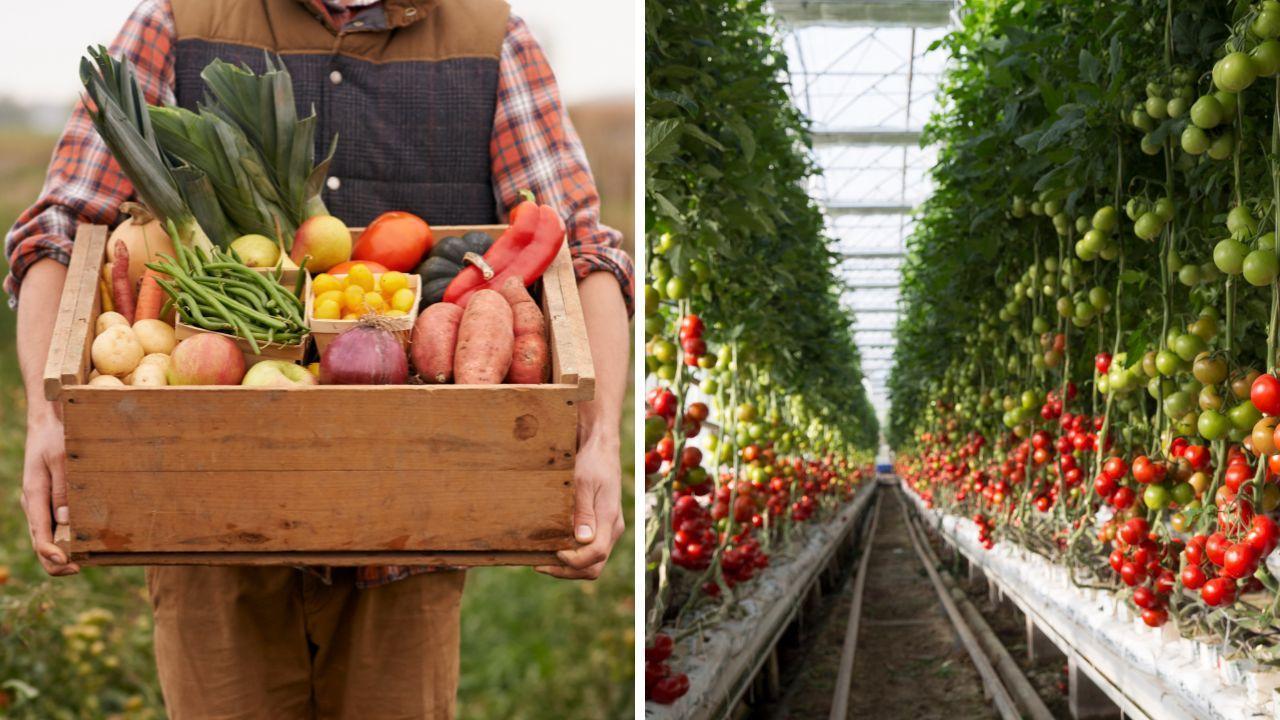
Post by : Zayd Kamal
In today’s world, the way we eat is undergoing a revolution. As consumers become more mindful about the origins of their food, the concept of sustainable dining is rapidly gaining momentum. From farm practices that prioritize the environment to restaurants embracing eco-friendly initiatives, the journey of food from farm to fork is now seen through a different lens. This shift isn't just about healthier meals—it’s about creating a sustainable future for everyone. But what exactly does sustainable dining mean, and how is it reshaping the way we eat?
Sustainable dining focuses on food that is grown, harvested, and prepared in ways that minimize environmental impact. This includes everything from the farming methods used to grow ingredients, to the energy consumption in kitchens, to the packaging of takeout meals. The goal is to ensure that food production and consumption are ecologically responsible, socially fair, and economically viable for future generations. As more people begin to appreciate the importance of this practice, it’s changing how we approach food in both homes and restaurants.
One of the key principles of sustainable dining is the farm-to-table movement. This philosophy emphasizes sourcing ingredients from local farms, ensuring freshness while reducing the carbon footprint associated with transporting food long distances. By purchasing locally, restaurants and consumers support local economies, promote biodiversity, and reduce the environmental impact caused by mass agriculture and global shipping. Many chefs and restaurateurs now work directly with farmers, fostering relationships that guarantee the freshest, most seasonal produce. These partnerships are a win-win, providing diners with high-quality, flavorful ingredients while supporting sustainable farming practices. The shorter the distance from the farm to the plate, the less harm is done to the environment—resulting in a cleaner, greener food system.
At the heart of sustainable dining is the method in which food is produced. Organic farming, which avoids synthetic pesticides and fertilizers, has long been a part of the sustainable food movement. It promotes healthier soil, reduces chemical runoff, and supports biodiversity. However, a new form of agriculture, known as regenerative farming, is taking this approach even further. Regenerative farming aims to not only reduce the impact on the environment but also to improve it. Through methods such as crop rotation, cover cropping, and agroforestry, regenerative farms work to restore the health of the soil and reduce carbon emissions. This type of farming contributes to the sustainability of our food systems, creating a direct link between responsible agricultural practices and the meals on our plates.

More restaurants are recognizing the importance of sustainable dining, and many are taking action to reduce their ecological footprint. Some establishments have adopted green initiatives, such as zero-waste kitchens, composting food scraps, and using renewable energy sources. Others have taken steps to minimize water and energy consumption, while also reducing plastic usage by opting for eco-friendly packaging. Menus in sustainable restaurants often focus on seasonal, plant-based options, as these dishes require fewer resources to produce compared to meat-heavy meals. Chefs are also embracing nose-to-tail and root-to-stem cooking, where every part of an animal or plant is used, minimizing food waste. This not only supports sustainable dining but also leads to creative, innovative dishes that delight diners.
While restaurants are leading the way, consumers play a crucial role in the sustainable dining movement. Small actions, such as choosing to eat at eco-conscious establishments, can make a big difference. Supporting local farmers' markets, reducing food waste at home, and being mindful of portion sizes are all easy steps toward a more sustainable lifestyle. Additionally, shifting toward a plant-based or plant-forward diet can significantly reduce one's carbon footprint. Meat production is one of the largest contributors to greenhouse gas emissions, so cutting back on animal products, even just a few days a week, can have a meaningful impact on the environment.
As awareness grows, sustainable dining is no longer just a trend but a critical movement shaping the future of food. Consumers are demanding more transparency about where their food comes from and how it's produced, while businesses and governments are beginning to implement policies that support sustainability in the food industry. Innovations such as vertical farming, lab-grown meat, and biodegradable packaging are becoming more common, offering solutions to the environmental challenges posed by traditional food production. These advancements promise to further revolutionize the way we eat, ensuring that sustainability remains at the core of our dining experiences.
From Farm to Fork: How Sustainable Dining is Changing the Way We Eat is about how sustainable dining helps people and the planet. Sustainable dining means eating food that is good for nature and grown without harming the earth. In sustainable dining, food is grown close to home and sent straight to the table, so there is less pollution. Many restaurants are using sustainable dining by choosing foods that are local and fresh. Sustainable dining also includes using organic and eco-friendly ways to grow food. People can help by eating plant-based meals and reducing waste to support sustainable dining. As more people try sustainable dining, it makes the world a better place for everyone.
Disclaimer: This article was brought to you by 'DXB News Network' for informational purposes. It provides insights into sustainable dining and its impact on our environment and food systems.
Sustainable dining, farm-to-table, eco-friendly dining, organic farming, regenerative farming, local food sourcing, seasonal ingredients, zero-waste kitchens, plant-based diet, food sustainability
#trending #latest #SustainableDining, #FarmToTable, #EcoFriendlyDining, #OrganicFarming, #RegenerativeFarming, #LocalFood, #SeasonalIngredients, #ZeroWaste, #PlantBased, #FoodSustainability #breakingnews #worldnews #headlines #topstories #globalUpdate #dxbnewsnetwork #dxbnews #dxbdnn #dxbnewsnetworkdnn #bestnewschanneldubai #bestnewschannelUAE #bestnewschannelabudhabi #bestnewschannelajman #bestnewschannelofdubai #popularnewschanneldubai










Sheikh Mansour Arrives in Kuwait to Boost UAE-Kuwait Relations
Sheikh Mansour arrives in Kuwait for an official visit to meet the Emir, aiming to strengthen UAE-Ku

Story :The Merchant of Manchester - by Dr Amrinder Pal Singh
Story of loss, Kindness, Betrayal… and Legacy

Rashid Al Obad Appointed Director General of Shams
Sheikh Sultan issues Emiri Decree appointing Rashid Al Obad as Director General of Sharjah Media Cit

Dubai’s Government Best Practices Series 2025 Highlights Innovation
The Government Best Practices Series 2025 in Dubai focused on government innovation, digital service

Dubai Hosts GenAI Masterclass for Future Family Leaders
Dubai Centre for Family Businesses held a GenAI masterclass to train 24 young leaders in using AI fo

ArtDomain by DXB News Network Opens to Strong Global Response — Applications Begin for A50 and The Art Guild.
ArtDomain by DXB News Network Opens to Strong Global Response — Applications Begin for A50 and The A

Dembele's Goal Gives PSG a 1-0 Win Over Arsenal in Semi-final
Ousmane Dembele scores early to give PSG a 1-0 win over Arsenal in their Champions League semi-final